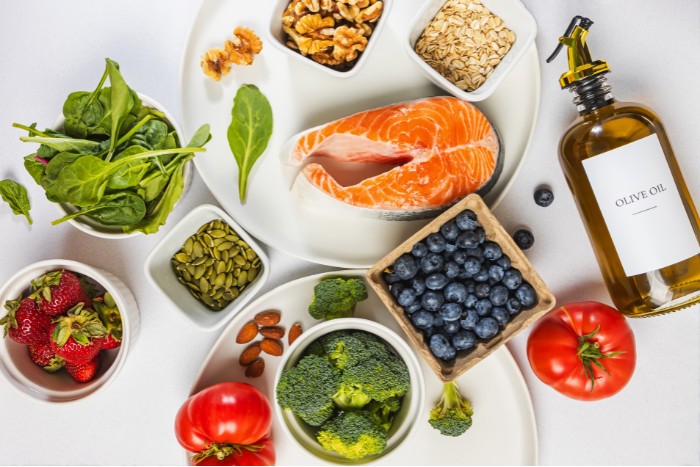When you see processed foods marketed as “healthy”, it’s important to look a little deeper than the packaging and buzzwords. While these products often claim benefits, like being low-fat, gluten-free, or all-natural, they can still hide pitfalls that impact your overall wellbeing.

Here are 4 points to consider with processed foods.
Before you dive in, download the FREE Healthy Substitutions Guide to help you create more nutritious, healthier meals at home!
- Hidden Ingredients and Additives
- Excess Sugar and Sodium: Many processed foods compensate for flavor loss during processing with added sugar or salt. Even if they’re labeled “low-fat”, these additives can spike caloric intake or blood pressure.
- Preservatives and Artificial Additives: To extend shelf life and enhance texture, manufacturers may use artificial preservatives, colors, or flavor enhancers that may not be as beneficial for you body as natural alternatives.
- Nutrient Depletion
- Stripped of Fiber and Micronutrients: Some processing techniques remove the naturally occurring fiber, vitamins, and minerals found in whole foods. This means the “healthy” option might lack the nutritional density essential for long-lasting energy and satiety.
- Fortification Isn’t Always Enough: Even if manufacturers add back vitamins or minerals, these fortified products often don’t match the nutritional profile and bioavailability of nutrients from minimally processed, whole foods.
- Misleading Marketing Claims
- Buzzwords that Don’t Tell the Whole Story: Terms like “natural”, “organic”, or “no added sugar” aren’t tightly regulated in some regions. This can allow products with questionable ingredient lists to be labeled as healthy, while overall, they’ve been engineered for taste and shelf stability rather than nutritional optimization.
- Portion Deception: The serving sizes listed on packages might be much smaller than what people typically consume, masking the product’s true nutritional impact when eaten in larger amounts.
- Impact on Weight and Energy Levels
- Caloric Density Versus Satiety: Processed healthy looking foods are sometimes calorie-dense without providing the fullness that comes from more natural, whole foods. This can lead to overeating and disrupted energy levels.
- Blood Sugar Spikes: Added sugars or refined carbohydrates can cause rapid spikes and crashes in blood sugar, potentially leading to cravings and fluctuating energy levels that hinder weight management.
While processed foods that claim to be healthy can be convenient, it’s wise to check the ingredient list and nutritional information carefully. Prioritize whole, minimally processed foods where possible, and use these “healthy” processed options as an occasional supplement rather than the foundation of your diet. This approach can contribute to better weight management, sustained energy levels, and overall improved health.




Leave a Reply